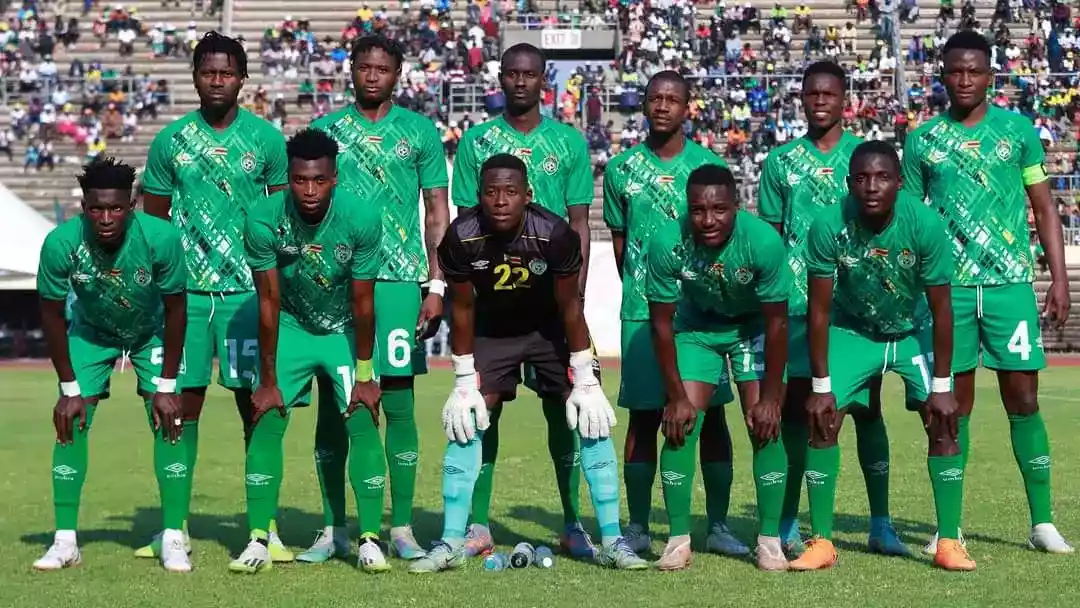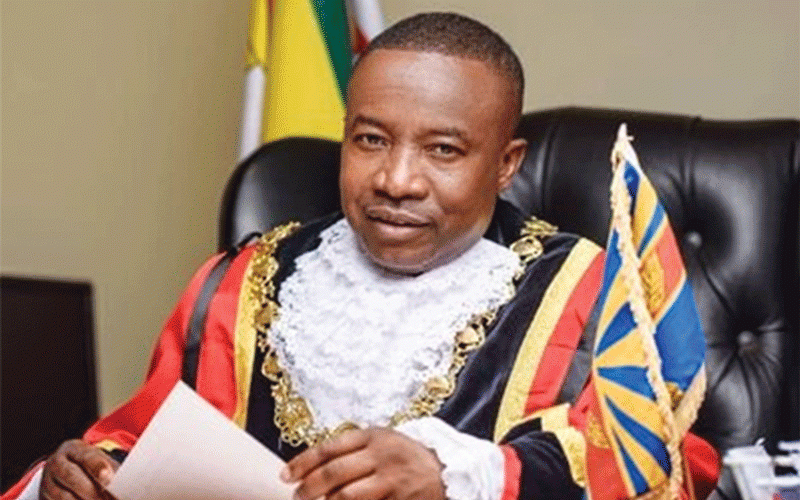
THROUGH no fault of their own, the Zimbabwe senior national soccer team — The Warriors — find themselves in a precarious situation and distinct disadvantage, even before the very first whistle of the 2025 Africa Cup of Nations (Afcon) qualifiers has been blown.
Zimbabwe are in Group J consisting of another southern African nation — Namibia — continental heavyweights and five-time champions Cameroon, as well as a much-improved Kenya.
With the top teams progressing to next year’s showcase in Morocco to join 22 other countries from 11 other groups, consensus among local football fans when the identity of the Warriors’ opponents in the qualifiers were revealed was that the draw was fair any Warriors coach.
Under normal circumstances — all things equal — The Warriors would fancy their chances of finishing at least second in the group, after Cameroon, who are among the hot favourites in the qualifiers to book a ticket to Morocco.
Such a conclusion, if history is anything to go by, could be arrived at when one considers that the Warriors have qualified for the Afcon showcase more times than Namibia.
Zimbabwe boast five appearances at Africa’s premier football stage — in 2004, 2006, 2017, 2019 and 2021.
The Brave Warriors, on the other hand, have four Afcon appearances.
And even if they shocked everyone including themselves by making it to the last round of 16 during the 2023 showcase, they cannot come anywhere near the Warriors if one is to compare the number of players turning out in respected European leagues between the two teams.
- Feature: ‘It’s worse right now than under Mugabe’: Sikhala pays the price of opposition in solitary cell
- SRC endorses Banda appointment as Zifa interim president
- Inside Sport: Local stadiums in urgent need of attention
- Zifa boss pleads with fans
Keep Reading
Under normal circumstances the Warriors would also fancy their chances against Kenya.
Despite having appeared at Afcon more than Zimbabwe and Lesotho, the Harambee Stars are already trembling at the prospect of facing the likes of Marshall Munetsi, Leon Chiwome, Tino Kadewere and others who could make up The Warriors’ foreign-based contingent of players.
However, as things stand, the circumstances for The Warriors are far from normal and all things are not equal.
The reality that Zimbabwe does not even have a single Caf approved stadium for the qualifiers spells disaster for the team.
Put in context, in all the three home matches that will make up their qualifying campaign, The Warriors will not enjoy the massive support and psychological advantage that come from playing at either Rufaro Stadium, the National Sports Stadium or any other facility in Zimbabwe.
Such a prospect creates a huge mountain to climb for Tapera and The Warriors and — at the risk of being called “a prophet of doom” — it would be unfair for us to blame the players or the technical team in the very likely event of Zimbabwe failing to qualify for next year’s tournament.
The blame for the stadia crisis, of course, lies squarely on our sports authorities in general and in particular a certain committee that has been sleeping on the job and in the process might have actually forgotten what their name means.
This mess will likely see The Warriors, once again, playing all their home matches of the qualifiers between September and November this year in South Africa — an unfortunate scenario for Zimbabwe, a country teeming with probably more international stars today than any other time in recent history.
I have watched live football and covered The Warriors as a sports reporter in Zimbabwe and South Africa long enough to appreciate how our stadiums in Harare and home conditions have unsettled many African powerhouses.
Those who appreciate football will agree that nothing can replace home advantage and the hostility an intimidating atmosphere it can create for visiting teams.
I was there in 1995 — January 22 to be exact — when Zimbabwe defeated Cameroon in an Africa Nations Cup qualifier by a 4 – 1 margin in front of a packed National Sports Stadium.
A hattrick from legendary former Warriors gunman Vitalis Takawira and a goal from midfield stalwart Paul Gundani were enough to tame the Indomitable Lions.
The response by the West Africans — a goal through Hans Agdoo — was completely overshadowed by The Warriors’ display of purposeful attacking football during an unforgettable era that remains a major talking point during football discussions by many local followers of the game.
But what stood out for me was the way an animated Bruce Grobbelaar, like a choir master, waved his hands and led the home crowd in singing the popular Yave Nyama Yekugocha chorus — a final nail in the coffin of the Cameroonians.
I was also there at the National Sports Stadium in 1997 — January 26 to be exact — when a Warriors side that included Peter Ndlovu, Norman Mapeza, Lloyd Chitembwe and others held the three-time African Footballer of the Year Abedi Ayew-led Black Stars of Ghana to a 0 – 0 draw in a continental qualifier.
This result was a good one, when one considers the fact that Ghana were at the peak of the towers as an African football powerhouse at that time.
The team that travelled to Harare for that match was a star-studded one which, besides Ayew, also boasted the likes of former Bayern Munich defensive stalwart Samuel Osei Kuffour, former Udinese defender Mohammed Gargo and other notable campaigners.
While Ghana eventually qualified for the 1998 tournament in Burkina Faso, they were repeatedly frustrated at the National Sports Stadium by Grobbelaar and company and in the end, had to settle for a point when many were expecting them to cruise to a comfortable win.
During that era, the National Sports Stadium had become notorious as an unsettling venue for any of the African giants that played there.
I have also seen how opposing teams have capitulated under pressure at Rufaro Stadium — on some of the occasions that the facility has been used as an international venue for The Warriors.
The secret weapon for Zimbabwe is that the stands at Rufaro are very close to the pitch and it, therefore, becomes very difficult for opposing teams to come to terms with the deafening cheers from prominent Warriors supporter Chris “Romario” Musekiwa and his colleagues when they are in song.
Sadly, the current crop of Warriors — as talented as they are — will not have similar support when they take to the field of play against Cameroon or any of their other opponents in their home matches of the Afcon qualifiers.
Unfortunately, the most important stakeholders of the game — the supporters — will not be at the National Sports Stadium, Rufaro Stadium or any of the other venues in Zimbabwe to cheer their favourite team in its quest for a sixth appearance at the Afcon stage because none of the country’s facilities meet the minimum international standards set by either Caf or Fifa for matches of such a magnitude.
How can we say we have an advantage against the rest of the teams in Group J when the country will have to pay hundreds of thousands of dollars to South Africa or whichever other country will provide a home venue for The Warriors?
And how can we expect our beloved Warriors and their coach to have the same passion, motivation and desire to win as their predecessors when they are going to soon find themselves in unfamiliar and hostile conditions that will be worsened by the disorder that is currently prevailing within the top echelons of our football administration?
The parliamentary team that recently probed the custodians of the National Sports Stadium, the Sports and Recreation Commission (SRC), to try and find out exactly why the facility is not yet ready to host international matches was probably well within its rights to do so.
However, SRC, as it rightly pointed out during that probe, relies on government for funds to renovate the stadium and unless the required financial resources are unlocked to complete the project, The Warriors are unlikely to have a home of their own anytime soon.
It is, therefore, wrong and completely unreasonable to expect good results on the field of play in the absence of basics such as genuine home facilities, adequate preparations as well as proper and consistent remuneration of coaches and players.
In fact, it is not different from scoring an own goal.
- Farirayi Kahwemba is a journalist, avid follower of many sporting codes and emerging chicken farmer.






